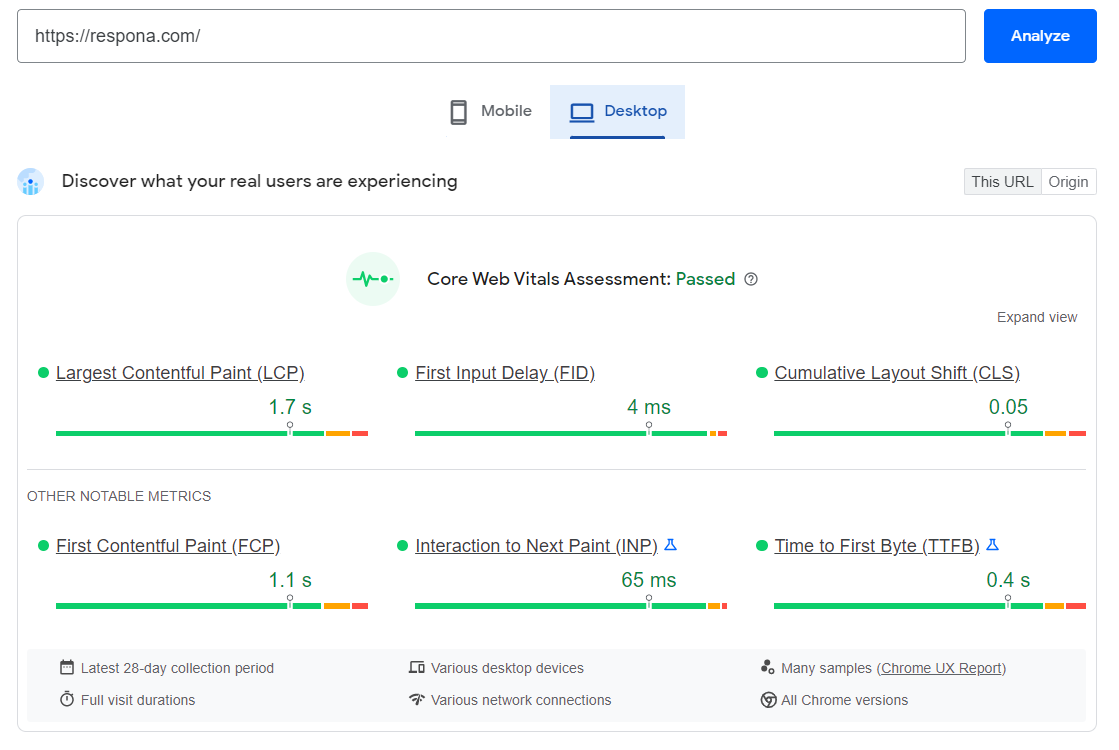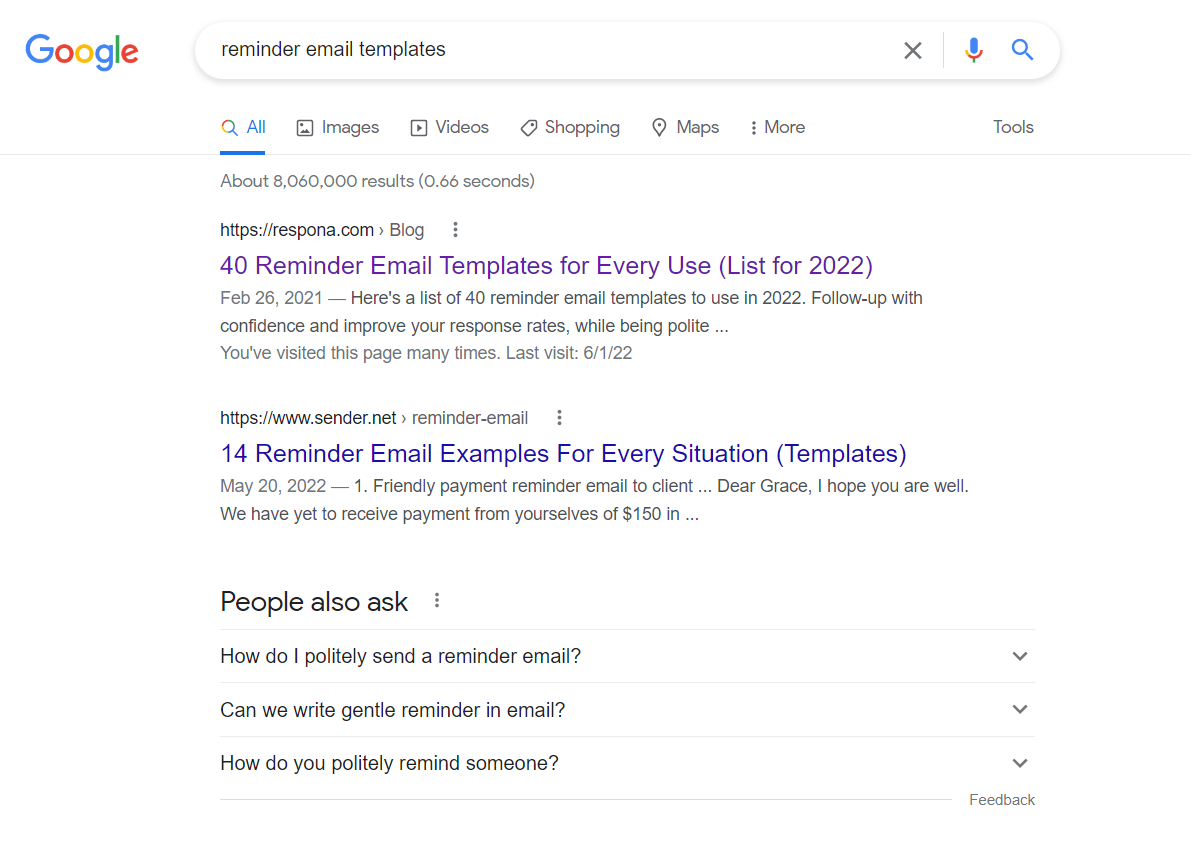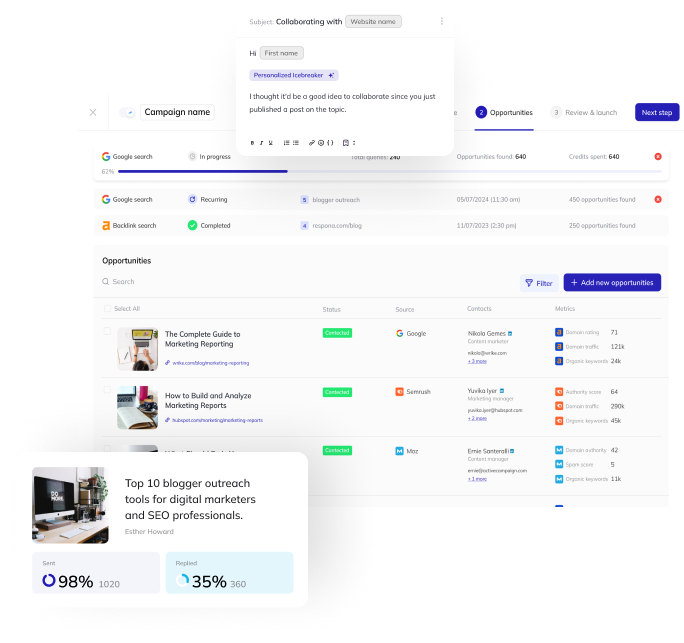Rankings
What are Rankings?
Search Engine Results Pages (SERP) rankings are the positions that a website is listed in search engine results pages.
The higher the ranking, the more likely people are to find the website.
This can have a big impact on the well-being of businesses online, as it can determine how much traffic they get and how successful they are.
The number one spot in Google search results receives 33% of traffic, compared to 18% for the second spot, and the traffic drops off significantly from there. So, if you want the most traffic to your website, you need to be in the top spot.
Besides the increase in traffic, there are other benefits of being in the top spot on Google. These include:
- Increased brand awareness and name recognition
When people see your website in the top spot of Google, they are more likely to remember your brand and come to you when they need your product or service.
- More leads and sales
Obviously, if you are getting more traffic to your website, you are also likely to see an increase in leads and sales.
- Improved ROI
With more traffic and leads, you will also see an improvement in your ROI.
- A competitive advantage
If your competitors are not ranking in the top spot, you will have a competitive advantage over them.
- Increased trust and credibility
When people see that you are the top result for their search, they will trust you more and see you as an authority in your industry.
Ranking Factors
There is a huge variety of ranking factors that are considered when your website’s rankings are calculated by Google’s algorithm.
In fact, there are over 200 of them, so let’s just take a look at the most important ones.
Security
Site security is a ranking factor because it is a signal to Google that your site is trustworthy and safe for users. Google takes site security into account when determining where to rank your site in search results.
To optimize your site security for SEO, you can do the following:
- Use a strong password for your WordPress site
- Use a security plugin like Wordfence to scan for malware and security vulnerabilities
- Keep your WordPress site up to date with the latest version
- Use a CDN (Content Delivery Network) to improve your site’s load time and security
- Use an SSL certificate to encrypt your site and improve your SEO
PageSpeed
Google’s PageSpeed Insights tool measures the performance of a page for mobile devices and desktop devices. It provides a score for each page, along with specific recommendations for how to improve that score.
Google has stated that page speed is a ranking factor for mobile searches and that they are working on making it a ranking factor for desktop searches as well.
There are a number of ways to improve your page speed score, but some of the most important are:
- Reducing the size of your HTML, CSS, and JavaScript files
- Compressing your images
- Using a content delivery network (CDN)
- Minimizing redirects
- Improving server response time

Mobile Optimization
Mobile optimization is the process of making your website more friendly and accessible to mobile devices.
This can be done through a variety of means, such as responsive design, separate mobile versions of your website, or dedicated mobile apps.
Mobile optimization is important because it is a ranking factor in Google’s search algorithm, and because more and more people are using mobile devices to access the internet.
Google uses mobile-first indexing, which means that it looks at the mobile version of your website first when determining your ranking.
This makes mobile optimization even more important, as it can directly impact your visibility in search results.
There are a number of ways to optimize your website for mobile, including using responsive design, creating a separate mobile version of your site, or developing a dedicated mobile app.
Age
Domain age is a ranking factor because it is a measure of how long a website has been around.
The longer a website has been around, the more likely it is to be a trusted and authoritative source of information.
Additionally, older resources that have been generating traffic for years are much more likely to show up high in search results than younger websites, even if the actual quality of their content is on the same level.
Content
Content is one of the most important ranking factors for a website because it is the main way that a website communicates with its audience.
Content must be well-written, accurate, and relevant to the user’s search intent in order to rank well in search engines.
In addition, content must be keyword-rich and optimized for search engine optimization (SEO) in order to rank well for relevant search queries.
Keywords
Keywords are a website ranking factor because they are used by search engines to determine the relevance of a website to a user’s search query. By including relevant keywords in your website content, you can help improve your website’s ranking in search engine results pages (SERPs).
To keyword-optimize your content, you should first identify the keywords that are most relevant to your website and then include those keywords throughout your content in a way that is both natural and effective.
You can use tools like Ahrefs to research relevant keywords to target, and MarketMuse to actually implement them throughout your content.

Backlink Profile
The backlinks that point to your site, as well as the overall quality of those connections, comprise your site’s link profile.
Each link passes on PageRank, which is a ranking factor in its own right.
However, keep in mind that it is the quality of incoming links that ultimately decides how Google and other search engines will rank your page.
A link profile is made up of the following elements:
- Inbound link types (dofollow, nofollow, UGC, sponsored)
- The inbound links’ anchor text
- How you obtained them
These are the measures that Google use in an effort to punish website owners into doing ethical and fair SEO.
The best way to build up your link profile is by conducting link building outreach and utilizing white-hat link building strategies, such as:
Social Signals
Social signals are basically votes from social media sites that indicate the popularity of a piece of content.
The more social signals a piece of content has, the more likely it is to rank higher in search engine results pages (SERPs).

The main reason social signals are a ranking factor is because they indicate the level of engagement a piece of content is getting.
If a lot of people are sharing, liking, and commenting on a piece of content, it’s a good sign that it’s interesting and relevant, and therefore more likely to be ranked higher.
There are a number of ways to generate more social signals for your website. The most obvious is to create great content that people will want to share.
Other ways include using social media buttons on your website, encouraging social sharing in your email newsletters, and running social media ads.
Rankings Example
Here is an example of our own article ranking at #1 for the “reminder email templates” keyword:

How to Improve Your Own Website’s Rankings?
There is no single way to achieve higher rankings as there are so many ranking factors, but some most important processes to keep in mind are:
- Developing a solid SEO strategy
- Link building
- Keyword and audience research
- Content marketing
- Ensuring crawlability and indexability of your site
Bottom Line
The fabled #1 spot in SERPs is hard to achieve, but once you do, the impact on your website’s organic traffic and conversions makes it all worth it.

